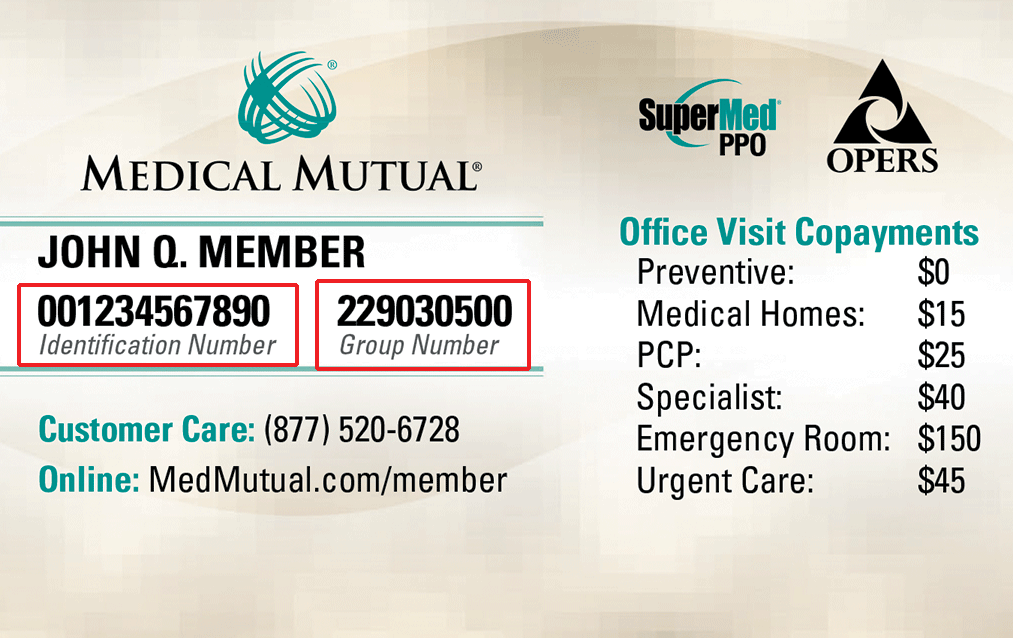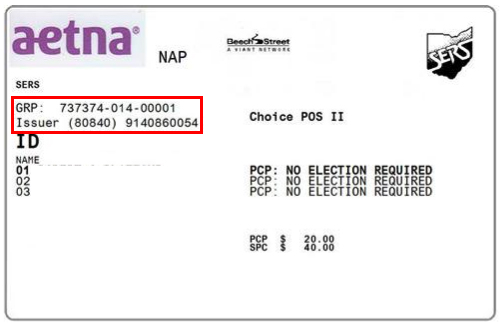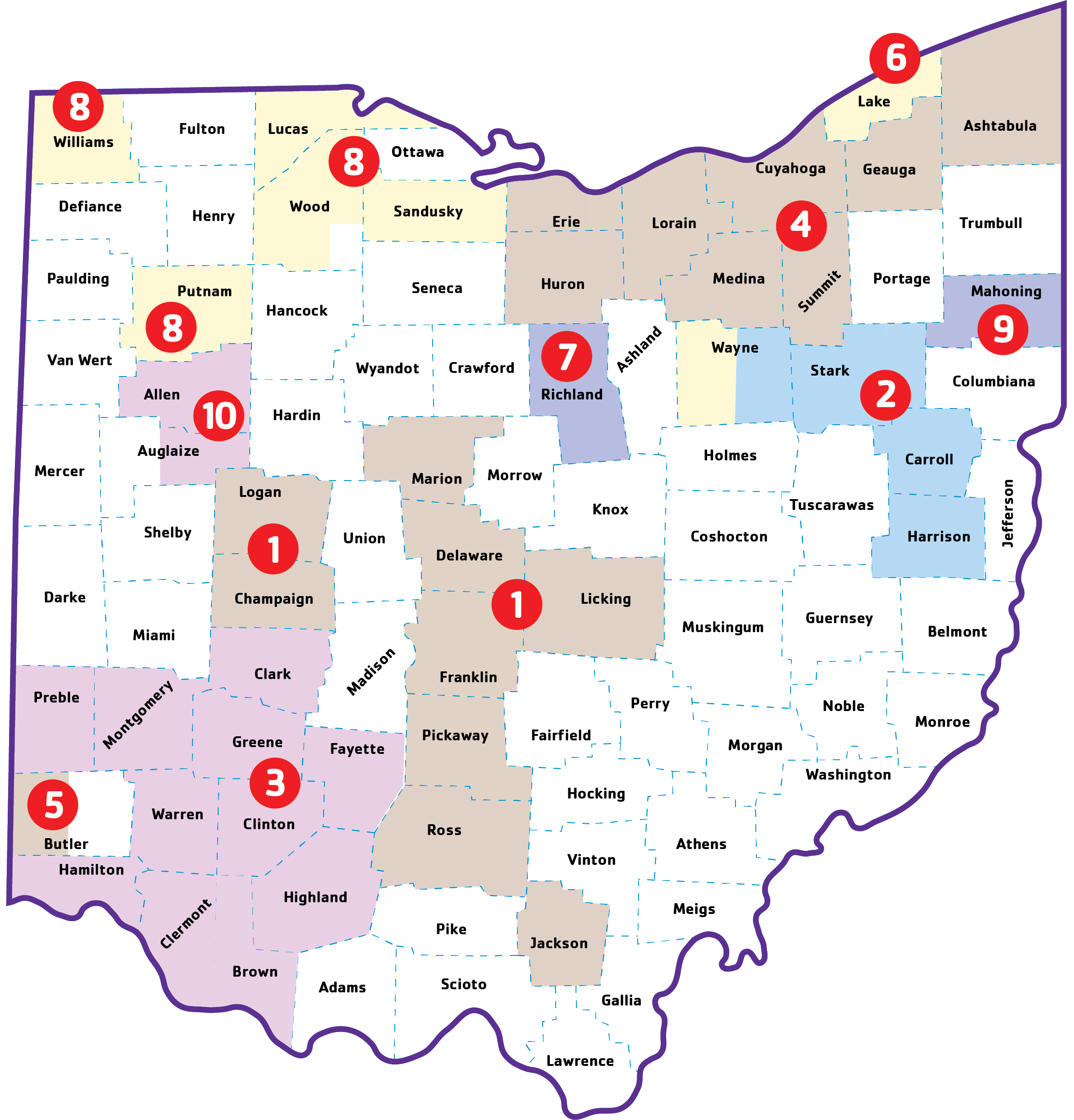Below, you will find many of the answers you are looking for. But, if you still have further questions, don't hesitate to talk to your doctor for more information. So, let's get going.
YMCA Membership NOT Required to Enroll
NO a referral from your doctor is not required. However we will need to get information including your age, weight, height and blood glucose levels if available.
If you have not had your glucose level you may qualify based on the risk test.
If you have not had your glucose level you may qualify based on the risk test.
No. OPERS is pleased to offer the YMCA’s Diabetes Prevention Program to its pre-Medicare retirees and dependents enrolled in the OPERS Medical Mutual Plan. This program is available at no cost to our Medical Mutual participants and available at local Ohio YMCAs. If you have questions, please call Medical Mutual at 1-877-520-6728.
No. SERS is pleased to offer the YMCA’s Diabetes Prevention Program to its pre-Medicare retirees and dependents enrolled in the SERS Aetna Traditional Choice Plan or the Aetna Choice POS II Plan. This program is available at no cost to our Aetna participants and available at local Ohio YMCAs. If you have questions, please call Aetna at 1-800-826-6259.
Yes, however, they also must be enrolled in the OPERS Medical Mutual plan.
Yes, however, they also must be enrolled in the SERS Aetna Traditional Choice Plan or the Aetna Choice POS II Plan.



You don’t have to be a YMCA member to participate. In fact, those actively participating in the program will have access to various YMCA membership services and programs. More information will be provided at the time of enrollment.
We understand that you have many commitments. Particiation is key and we know that the more sessions you attend the more successful participants are. However coaches are able to hold make up sessions with participants when they miss a session.
New classes will be starting in the months ahead. Please fill out the enrollment information and let us know approximately when you can start the program. Just provide the month that you can start, or, for those enrolling in November or December, list 'after the first of the year'.
Prediabetes
One in three American adults has prediabetes, but only 10 percent of them know they have it. Prediabetes means a person's blood glucose (sugar) level is higher than normal, but not high enough yet to be diagnosed with diabetes. People with prediabetes are on the road to develop type 2 diabetes within several years, and are also at increased risk for serious health problems, such as stroke and heart disease. There are some prediabetes risks you can't control, like age and family history. But there are things you can do to reduce your risk, such as increased physical activity and weight loss. And making these lifestyle changes can also help prevent or delay the onset of type 2 diabetes.
There are not usually symptoms when you have prediabetes. Talk to your doctor to know for sure. A simple blood test can confirm if you have prediabetes.
There are not usually symptoms when you have prediabetes. Talk to your doctor to know for sure. A simple blood test can confirm if you have prediabetes.
A high score on the online risk test means you most likely have prediabetes, but only a blood test can tell you for sure, so talk to your doctor. Your doctor will do a simple blood test to check your blood sugar levels. If those levels are higher than normal, but not yet high enough to be type 2 diabetes, it means you do have prediabetes. But the good news is... as you have just learned... that prediabetes can often be reversed.
15-30 percent of people who have prediabetes will develop type 2 diabetes within 5 years. If you don't make lifestyle changes, it puts you at greater risk. Studies show that losing just 5-7 percent of your body weight by eating healthier and doing regular exercise can help prevent or delay the onset of type 2 diabetes. For a person who weighs 200 pounds, that's about 10-15 pounds. Evidence shows that the YMCA's Diabetes Prevention Program is the most effective way to reverse prediabetes.
Talk with your doctor, and ask if he or she can connect you with the YMCA's Diabetes Prevention Program or nutrition counseling, which can help you learn to eat less of the foods that are bad for you, and more of the foods that are good for you. Also, keep in mind that increasing your physical activity helps. There are many ways to increase your physical activity, including walking, taking dance classes, going to a gym, playing tag with your kids, and many other real-life ways to get up and get moving.
It's important to act now, because the sooner you start making changes, the better chance you have of preventing type 2 diabetes. Studies show that without weight loss and moderate physical activity, 15-30 percent of people who have prediabetes will develop type 2 diabetes within 5 years.
You can start slowly and ease these changes into your life until they feel normal. Changes need to be permanent to avoid having prediabetes or being at high risk for type 2 diabetes again in the future. That's why it's important to make changes that fit into your real-life — there is not a "one size fits all" program. The YMCA's Diabetes Prevention Program can help you along the way.
You can start slowly and ease these changes into your life until they feel normal. Changes need to be permanent to avoid having prediabetes or being at high risk for type 2 diabetes again in the future. That's why it's important to make changes that fit into your real-life — there is not a "one size fits all" program. The YMCA's Diabetes Prevention Program can help you along the way.
But who is most at risk for prediabetes and type 2 diabetes?
- Have a family history of diabetes
- Are over age 40 - the risk for diabetes increases as you get older
- Are overweight
- Have a history of gestational diabetes - diabetes or high blood sugar when pregnant
- Have high blood pressure
Type 2 Diabetes
Diabetes is a disease in which blood sugar levels are above normal. Most of the food we eat is turned into sugar, for our bodies to use for energy. The pancreas, an organ that lies near the stomach, makes a hormone called insulin to help sugar get into the cells of our bodies. When you have diabetes, your body either doesn't make enough insulin or can't use its own insulin as well as it should. This causes sugar to build up in your blood.
Diabetes can cause serious health complications including heart disease, blindness, kidney failure, and lower-limb amputations. Nearly 30 million Americans have diabetes, and 1 out of 4 of them do not know they have it. Diabetes is the seventh leading cause of death in the United States.
Diabetes can cause serious health complications including heart disease, blindness, kidney failure, and lower-limb amputations. Nearly 30 million Americans have diabetes, and 1 out of 4 of them do not know they have it. Diabetes is the seventh leading cause of death in the United States.
Type 1 diabetes is when your body makes very little insulin or no insulin at all, and is typically diagnosed when a person is a child or young adult. People with type 1 diabetes require insulin shots or an insulin pump.
Type 2 diabetes is when your body cannot use the insulin it makes, and eventually does not make enough insulin. It is normally found in people who are overweight, have family history, do not get enough physical activity, and are middle-aged or older. Type 2 accounts for about 90-95 percent of all diabetes cases. Type 2 diabetes can sometimes be treated with lifestyle changes and/or pills, but many people require insulin shots.
Type 2 diabetes is when your body cannot use the insulin it makes, and eventually does not make enough insulin. It is normally found in people who are overweight, have family history, do not get enough physical activity, and are middle-aged or older. Type 2 accounts for about 90-95 percent of all diabetes cases. Type 2 diabetes can sometimes be treated with lifestyle changes and/or pills, but many people require insulin shots.
Sometimes there are no symptoms, or the symptoms are not obvious, which is why you should talk with your doctor about your risk for type 2 diabetes. If someone's blood sugar level is very high, they may have blurry vision, feel thirsty, feel tired, and urinate frequently. Remember, you cannot rely on symptoms to know if you have type 2 diabetes. Talk to your doctor.
Type 2 diabetes is diagnosed using the same blood tests as prediabetes.
Adults who have diabetes have a 50 percent higher risk of death than those who do not. People who have diabetes are at higher risk of serious health complications including heart attack, stroke, kidney failure, blindness, and amputation of toes, feet or legs.
Type 2 diabetes is usually treated with medicines, such as pills and insulin shots. People with type 2 diabetes should get regular physical activity and eat healthier because these things also help keep blood sugar levels under control.
Service Locations
- YMCA of Central Ohio (Medicare DPP provider)
- YMCA of Central Stark County (Medicare DPP provider)
- YMCA of Greater Dayton (Medicare DPP provider)
- YMCA of Greater Cleveland (Medicare DPP provider)
- Great Miami Valley YMCA
- Lake County YMCA
- YMCA of Mansfield
- YMCA of Greater Toledo
- YMCA of Youngstown
- Lima YMCA


Do I have Prediabetes?

Answer these seven simple questions to find our your risk for prediabetes.
Ready to Register?

Find a location and complete the registration form to preregister for a YMCA's Diabetes Prevention Program class.

